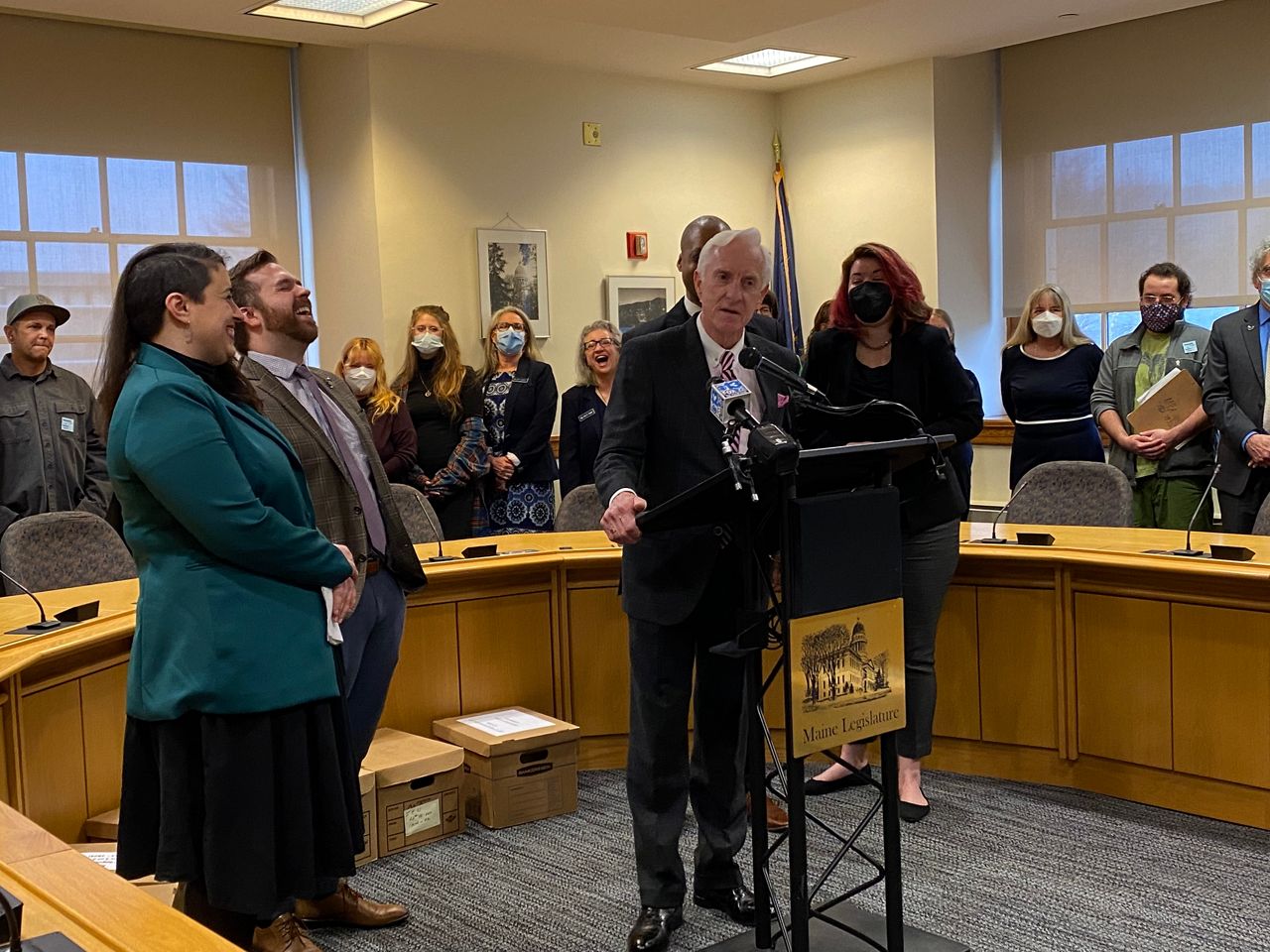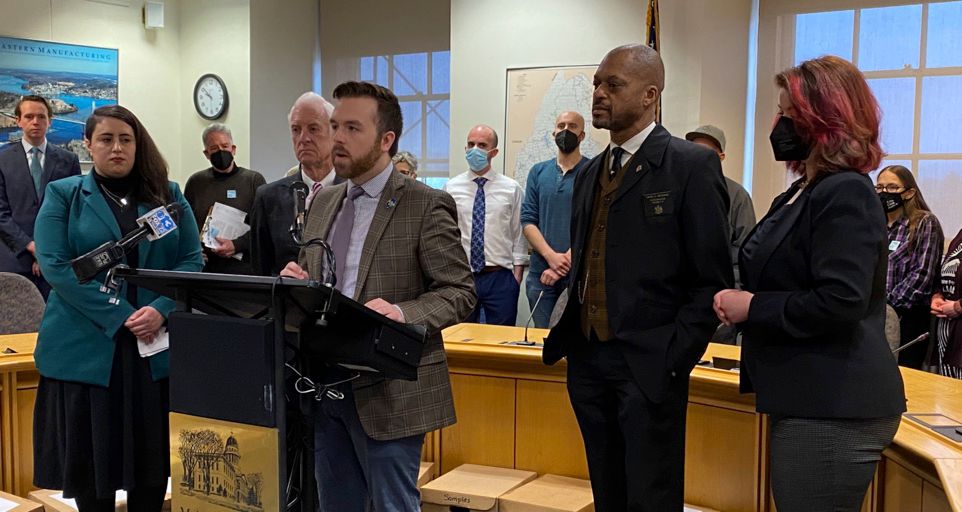House Speaker Ryan Fecteau said Thursday that the lack of affordable housing in the state is adding up to a “recipe for disaster,” making a bill he’s sponsoring all the more essential.
“We need roughly a thousand new units to be built per year to keep up with demand but Maine has only built about 250 units per year,” the Biddeford Democrat said. “Statewide, we’re about 25,000 units below the overall housing supply needed.”
Adding to that challenge is an in-migration of people from other states of more than 16,000 last year and a low birth rate, he said.
To try to address the need, Fecteau, the Maine State Chamber of Commerce, the Maine AARP and others gathered at the State House to speak in support of LD 2003, a bill that would allow Maine property owners to build accessory dwelling units in residential areas and allow up to two units on a lot zoned for single-family housing, according to the speaker’s office.
In addition, the bill allows larger communities with growth areas to add up to four units and requires that local rules regarding setbacks, height and dimensional requirements be met.
For the state chamber, the need for workforce housing is urgent, said Chamber President Dana Connors.

“It is so related to workforce that to deny it is denying the obvious,” he said.
From AARP’s standpoint, many older Mainers want to continue to live in their communities as they age, but there aren’t enough affordable options available.
“This bill will update Maine zoning and land-use laws to bring about needed changes such as allowing more Mainers to build accessory dwelling units that can serve as flexible, affordable housing units,” said Bridget Quinn, Maine AARP director for advocacy and outreach.
She said a national AARP survey shows 86% of respondents said they would consider building an accessory unit for a family member.
The bill is opposed by the Maine Municipal Association, which feels lawmakers are putting something in place without providing enough support for communities, said MMA lobbyist Kate Dufour.
She said when the state disbanded the State Planning Office in 2012, “basically the state turned its back on municipal planning for a decade.”
“We get it,” Dufour said. “There is a housing crisis in the state but it’s not identical in every community.”
In response, Fecteau said he and others negotiated closely with MMA for two years and gave them a seat on the commission that studied the issue. He said the bill was amended to address some of the group’s concerns.
Sen. Mattie Daughtry (D-Brunswick), chairwoman of the Legislature’s Labor and Housing Committee, said the committee spent more time on this bill than any other this session and that the process has been thorough.
“I’m getting calls from folks who are making middle-income salaries at some of the biggest employers in our state and are sleeping in their car right now,” she said. “We don’t have time to wait. This is a great common-sense step.”
Rather than pass LD 2003, Dufour said the state should develop model ordinances that cities and towns can review to see if they are a good fit for their community. She said cities and towns must also consider steps needed to address climate change, solar development, PFAS, alongside their own comprehensive plans.
Cities and towns are feeling a bit of whiplash, she said.
“It’s like we swing from one side of the pendulum to the opposite extreme saying we know best,” she said.




